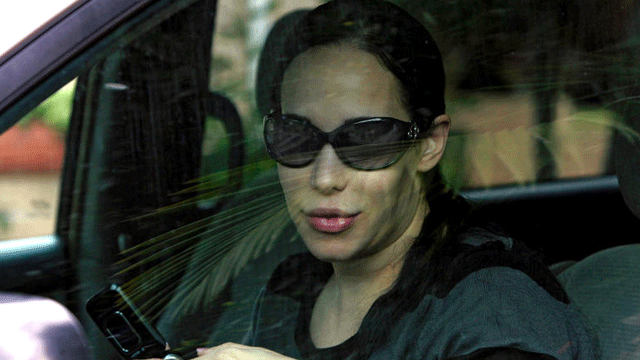
The Beverly Hills fertility doctor who helped "Octomom" Nadya Suleman become the mother of 14 children through repeated in vitro treatments is being barred from practicing medicine.
The Medical Board of California said the decision to revoke Dr. Michael Kamrava's license was necessary to protect the public. The revocation takes effect July 1. The 45-page decision was made public Wednesday.
Kamrava has acknowledged implanting 12 embryos into Suleman, then 33, prior to the pregnancy that produced her octuplets. It was six times the norm for a woman her age.
That was a mistake, according to the board, which rejected an earlier recommendation to give Kamrava five years of probation to dole out the harsher punishment.
"While the evidence did not establish (Kamrava) as a maverick or deviant physician, oblivious to standards of care in IVF practice, it certainly demonstrated that he did not exercise sound judgment in the transfer of twelve embryos to (Suleman)," the board said.
Kamrava's lawyer Henry Fenton did not immediately return phone calls seeking comment.
Since Suleman's octuplets were born in January 2009, the medical community and public have puzzled over how a doctor could have implanted so many embryos into a patient and how the babies were carried to premature birth.
In practice, fertility doctors avoid mega-births, as high number multiple births are sometimes called, because the process can put the mother at risk for serious complications and death. Crowding in a mother's uterus could also result in premature birth, cerebral palsy, developmental delays or other health problems for the babies.
To date, Suleman's octuplets are the world's longest surviving set. When they were born, the unemployed single mother already had six children -- also conceived through Kamrava's treatments -- and was living with her mother in a small house that would soon be foreclosed on.
In early interviews, Suleman praised Kamrava's care and wrongly claimed that she had only been implanted with six embryos, with two of the embryos splitting to become twins.
With a tearful apology, Kamrava testified at his hearing last year that he implanted Suleman with 12 embryos because she insisted on it and she consented to undergoing fetal reduction if too many of the babies became viable.
The board responded to that defense, writing, "A fetal reduction procedure has risks, including the loss of all pregnancy, and to assign even a scintilla of responsibility to a patient who becomes pregnant and then elects not to follow through with a procedure that may jeopardize her (and possibly her family's) prized objective is troubling and telling."
The state also found that Kamrava was negligent in the care of two other patients -- a major factor in the decision to revoke his license.
"This is not a one-patient case or a two-patient case; it is a three-patient case and the established causes of discipline include repeated negligent acts," the board decision reads.
Kamrava was found to have implanted seven embryos in a 48-year-old patient, resulting in quadruplets. One fetus died before birth.
In another case, Kamrava went ahead with in vitro fertilization after tests detected atypical cells, which can indicate the presence of a tumor. The patient was later diagnosed with stage-three cancer and had to have her uterus and ovaries removed before undergoing chemotherapy.
Kamrava said he should have referred her to a gynecological oncologist but simultaneous to her treatment, news broke about Suleman's octuplets and he became too distracted to follow up the patient's care.
Medical board spokeswoman Jennifer Simoes said Kamrava could petition for the board to reconsider the revocation, but it's unlikely it would change the outcome since the board chose to make its own call on Kamrava's license rather than accepting a proposed decision.
By law, Kamrava can petition for reinstatement three years after revocation takes effect.






